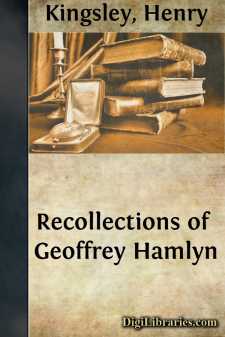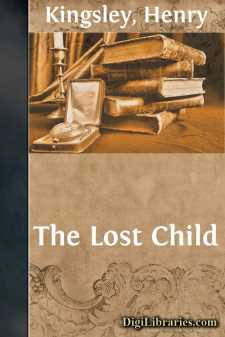Categories
- Antiques & Collectibles 13
- Architecture 36
- Art 48
- Bibles 22
- Biography & Autobiography 813
- Body, Mind & Spirit 142
- Business & Economics 28
- Children's Books 14
- Children's Fiction 11
- Computers 4
- Cooking 94
- Crafts & Hobbies 4
- Drama 346
- Education 46
- Family & Relationships 57
- Fiction 11829
- Games 19
- Gardening 17
- Health & Fitness 34
- History 1377
- House & Home 1
- Humor 147
- Juvenile Fiction 1873
- Juvenile Nonfiction 202
- Language Arts & Disciplines 88
- Law 16
- Literary Collections 686
- Literary Criticism 179
- Mathematics 13
- Medical 41
- Music 40
- Nature 179
- Non-Classifiable 1768
- Performing Arts 7
- Periodicals 1453
- Philosophy 64
- Photography 2
- Poetry 896
- Political Science 203
- Psychology 42
- Reference 154
- Religion 513
- Science 126
- Self-Help 84
- Social Science 81
- Sports & Recreation 34
- Study Aids 3
- Technology & Engineering 59
- Transportation 23
- Travel 463
- True Crime 29
Recollections of Geoffrey Hamlyn
by: Henry Kingsley
Categories:
Description:
Excerpt
INTRODUCTORY.
Near the end of February 1857, I think about the 20th or so, though it don't much matter; I only know it was near the latter end of summer, burning hot, with the bushfires raging like volcanoes on the ranges, and the river reduced to a slender stream of water, almost lost upon the broad white flats of quartz shingle. It was the end of February, I said, when Major Buckley, Captain Brentwood (formerly of the Artillery), and I, Geoffry Hamlyn, sat together over our wine in the veranda at Baroona, gazing sleepily on the grey plains that rolled away east and north-east towards the sea.
We had sat silent for some time, too lazy to speak, almost to think. The beautiful flower-garden which lay before us, sloping towards the river, looked rather brown and sere, after the hot winds, although the orange-trees were still green enough, and vast clusters of purple grapes were ripening rapidly among the yellowing vine-leaves. On the whole, however, the garden was but a poor subject of contemplation for one who remembered it in all its full November beauty, and so my eye travelled away to the left, to a broad paddock of yellow grass which bounded the garden on that side, and there I watched an old horse feeding.
A very old horse indeed, a horse which seemed to have reached the utmost bounds of equine existence. And yet such a beautiful beast. Even as I looked some wild young colts were let out of the stockyard, and came galloping and whinnying towards him, and then it was a sight to see the old fellow as he trotted towards them, with his nose in the air, and his tail arched, throwing his legs out before him with the ease and grace of a four-year-old, and making me regret that he wasn't my property and ten years younger;—altogether, even then, one of the finest horses of his class I had ever seen, and suddenly a thought came over me, and I grew animated.
"Major Buckley," I said, "what horse is that?"
"What horse is that?" repeated the major very slowly. "Why, my good fellow, old Widderin, to be sure."
"Bless me!" I said; "You don't mean to say that that old horse is alive still?"
"He looks like it," said the major. "He'd carry you a mile or two, yet."
"I thought he had died while I was in England," I said. "Ah, major, that horse's history would be worth writing."
"If you began," answered the major, "to write the history of the horse, you must write also the history of every body who was concerned in those circumstances which caused Sam to take a certain famous ride upon him. And you would find that the history of the horse would be reduced into very small compass, and that the rest of your book would assume proportions too vast for the human intellect to grasp."
"How so?" I said.
He entered into certain details, which I will not give. "You would have," he said, "to begin at the end of the last century, and bring one gradually on to the present time. Good heavens! just consider."
"I think you exaggerate," I said.
"Not at all," he answered. "You must begin the histories of the Buckley and Thornton families in the last generation....



